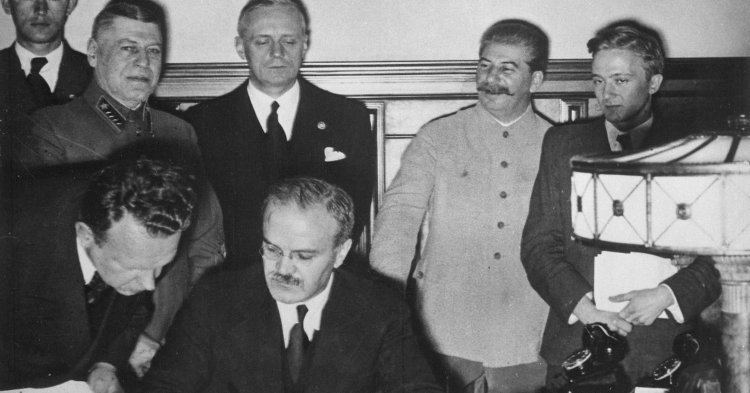The secret protocol of the Molotov–Ribbentrop Pact designated Nazi and Soviet spheres of influence just days before World War II started with Adolf Hitler’s attack on Poland. As a result of the pact, the USSR annexed the Baltic states, attempted to invade Finland, and took over parts of Romania. The protocol tragically split Poland in half.
Brute power politics
The pact symbolises brute power politics where great powers act over the heads of small countries – ruining millions of lives in the process. The international institutions of the 1930s were too weak to fulfil their task of maintaining peace. Instead, the world’s affairs were decided between national leaders in shadowy cabinets. Indeed, the additional protocol was such a secretive affair that the Soviet Union never admitted the document’s existence.
It took fifty years until the Baltic states began to taste freedom again. It’s no wonder that after regaining independence, one of their highest priorities was to join international organisations and gain their protection. Estonia, Latvia and Lithuania joined both NATO and the European Union in 2004.
A strong EU as a remedy
It is curious, then, to occasionally hear arguments about the EU suppressing small countries’ sovereignty, and “the big countries deciding everything”. Most certainly, on 23 August 1939, the Finnish, Estonian or Latvian foreign ministers were not sitting around the table together with Molotov and von Ribbentrop.
Whenever Europe’s great powers still make decisions among themselves in closed backrooms, it’s because the EU is still too weak. Indeed, strong EU institutions like the Commission, acting in the European interest, are the greatest protection that Europe’s small countries can enjoy against the excesses of their big and relatively powerful neighbours.
Europeans must stand together to defend international institutions
The same applies on a global arena: without rules and institutions, it’s the small countries that suffer. If Donald Trump ever makes a shadowy pact to give free rein to Vladimir Putin in Eastern Europe, it will be over the heads of Europeans, and at the expense of the institutions that have kept us safe over the past three decades. In the global scheme of things, all European countries are small, liable to be flushed away by the tidal waves of great power politics.
Those speaking against the EU and other institutions think of sovereignty simply as the theoretical power to make a decision on your own. That’s a misguided definition of sovereignty. In the real world, sovereignty is about capability to make a difference in the world, and to guarantee your security.
As a member state of the EU, the Estonia of August 2019 is by far more sovereign than the Estonia of August 1939 – formally independent but practically helpless – ever was. The great powers of the yesteryear, too, can only avoid falling into the pit of helplessness by promoting a stronger EU.
Europeans must stand firmly together in a strong EU, and steadfastly defend international institutions in arenas larger than our continent. That is the only way we can avoid falling beholden to the Molotovs and von Ribbentrops of the 21st century.


Follow the comments: |
|
